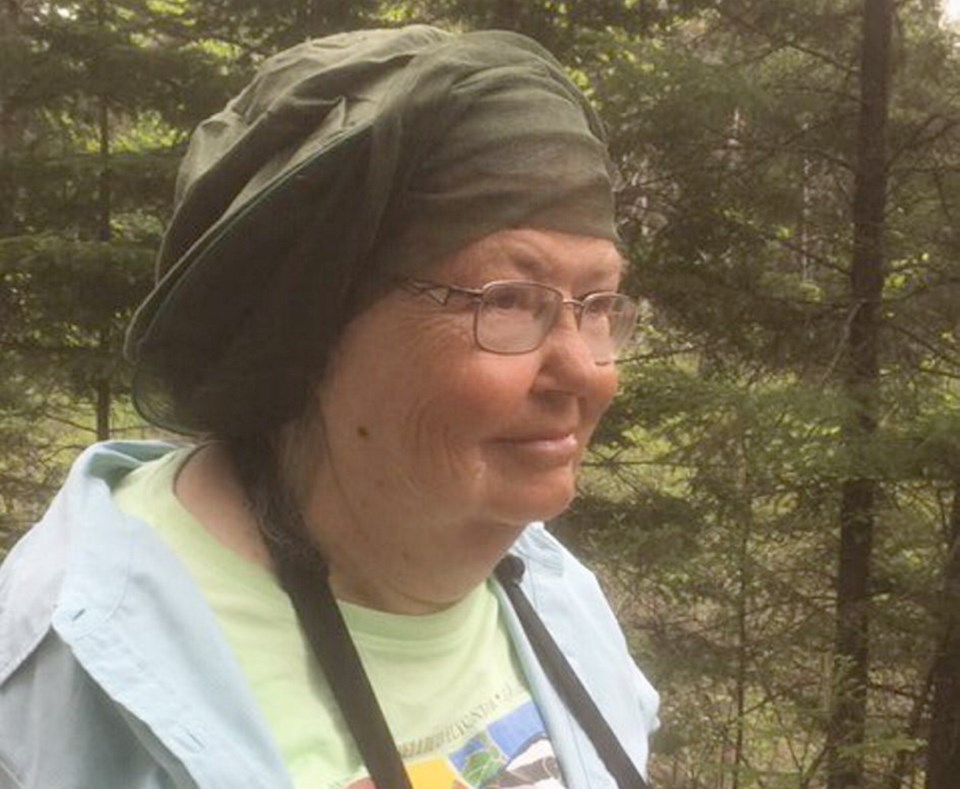Barb McLintock, a reporter-turned-coroner whose wide-ranging experiences connected her to many around the region, died Saturday from complications from thyroid cancer. She was 68.
News of McLintock’s death was shared widely on social media, as doctors, police officers, public servants, journalists, bird-watchers and others offered their memories.
Dr. Richard Stanwick, chief public health officer for Island Health, said what astounds him about McLintock was the wide variety of activities and roles she undertook and excelled at.
McLintock was a reporter in Victoria for The Province newspaper. She worked at the legislature press gallery when few women were there, won a national award for investigative journalism and wrote two books.
She was later a member of the B.C. Coroners Service and raised public alarm about the opioid crisis.
But McLintock also rode horses, travelling to England for equestrian events. She was a good photographer whose work was displayed at public events, a Girl Guide leader and an enthusiastic bird-watcher. The YM-YWCA named her one of its Women of Distinction in 2004 and the City of Victoria made her an honorary citizen for her volunteer work.
“She was truly one of Victoria’s characters because she was a Renaissance type who influenced so many and did so much,” Stanwick said. “She probably lived three lives and squeezed it into the time she had.
“You want to ask: ‘When did she have time to sleep?’ ” he said.

McLintock, an only child, was born in Winnipeg and studied psychology at the University of Winnipeg. Her father, Peter McLintock, was executive editor of the Winnipeg Free Press.
After moving west, she worked briefly at the Times Colonist. Beginning in 1982, she headed the Victoria bureau for The Province newspaper until corporate downsizing saw her accept an early-retirement package.
In 2004, she joined the B.C. Coroners Service as an investigating coroner. She later became the first coroner of strategic programs, a role that included communications and media relations.
McLintock retired in February 2017, but returned on a part-time basis a few months later.
“I cannot say enough about the credibility, professionalism and experience she brought to the coroners service,” Lisa Lapointe, B.C.’s chief coroner, said Saturday in a statement.
As a journalist, McLintock won the Canadian Association of Journalists’ Best Investigative Reporting Award in 1996 for exposing abuse at the Jericho Hill School for the Deaf. She wrote two books: Anorexia’s Fallen Angel, documenting controversial treatment at the Montreux Clinic for anorexia in Victoria, and Smoke Free, about Victoria’s move to ban indoor smoking.
Victoria Police Chief Del Manak said he met McLintock shortly after his promotion to road sergeant and would encounter her at traffic accidents and later on during more sensitive investigations.
“I have a ton of respect for her and I have to say she had a ton of respect from the entire police community,” Manak said.
Premier John Horgan tweeted his sadness at the loss of a fine journalist and dedicated public servant, adding: “I will miss her blue-ribbon photography at the Luxton Fall Fair.”
Longtime journalism colleague and close friend Alan Perry from CFAX radio said what always impressed him about McLintock was her ability to listen and retain information.
Other reporters stand up to politicians with recording devices. McLintock approached them empty-handed and just talked. She explained that politicians, like all people, will speak more humanly when they are not facing a device.
Among journalists, she was famous for the crochet work she would complete during courtroom sessions or official hearings while other reporters scribbled madly in notebooks.
Afterward, her quotes were always accurate, and Perry said he once double-checked his friend by going to a recording. Even those reporters who scribbled madly learned to check their quotes with McLintock.
But what Perry most admired about his friend was her ability to read quickly and spot an interesting detail. Many reporters handed a long report will look at the executive summary and write their stories from that. But McLintock would always read the entire report, sometimes hundreds of pages, and then file her story.
“Time after time, Barb would get a scoop,” Perry said. “Nobody ever puts embarrassing or less-than-flattering stuff in the executive summary.”
Ann Scarfe, Victoria naturalist, birder and longtime friend of McLintock, said the two would make excursions around North America and Central America to look at birds.
Scarfe, formerly of the Swan Lake Nature Centre, said McLintock always started the day looking at local newspapers. Then it was off to identify some unfamiliar birds.
“For her, it was always about attention to detail and enjoyment of detail,” Scarfe said. “For Barb, there was just this pure enjoyment of the detail.
“Barb was interested in the outdoors, she was interested in people, she was always interested in all the things going on around her.”



